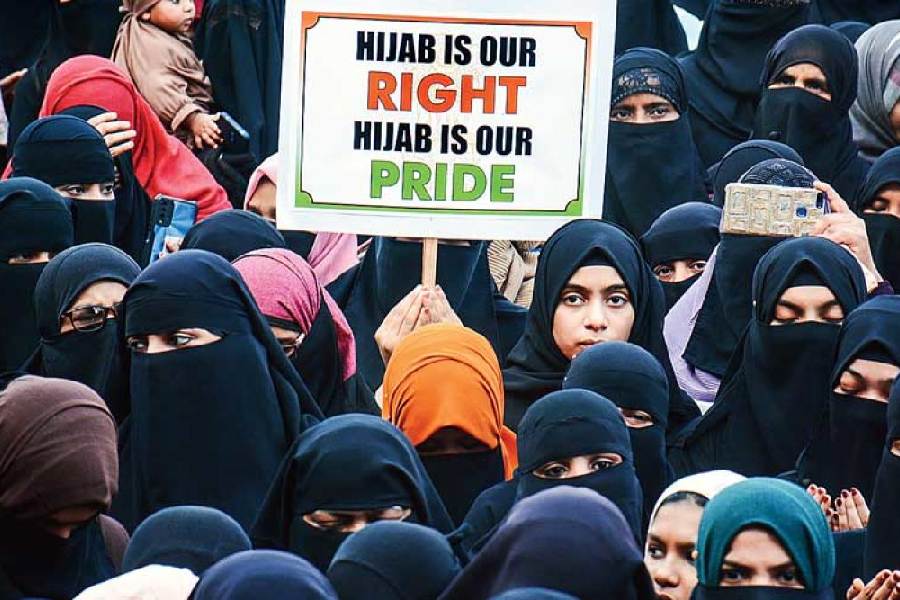The Supreme Court on Friday stayed a part of the Mumbai college circular that had banned the wearing of hijab, caps or badges but refrained from staying
the other restrictions like wearing naqabs (veil covering the face), even as it questioned whether the institution would impose similar restrictions on the sporting of tilaks and bindis.
Questioning the logic behind the imposition of such restrictions, the apex court noted that if the idea was to prevent a student from disclosing his or her identity then by the same yardstick even names of the wards would in any case disclose their religious denomination.
“What is this? Don’t impose such conditions. Your argument is that you don’t want students’ religion to be revealed. Would you then want the students to be allotted numbers at the gates instead of their names so that their religion is not revealed?” the bench of Justice Sanjiv Khanna and Justice Sanjay Kumar asked senior advocate Madhavi Divan representing the college.
The court was dealing with a petition filed by a batch of Muslim students challenging a Bombay High Court order of June 26, by which it had upheld the decision of the NG Acharya and D.K. Marathe College to ban students from wearing hijabs, naqabs, burkha, stole, caps etc that reveal the religious identity of the students.
A two-judge division bench of the high court upheld the ban on the ground that the rules were enacted to enforce certain discipline among the students and the management was well within its right to enforce such rules under its fundamental right to establish and administer an educational institution.
Aggrieved, the students had filed the present appeal on the ground that the impugned rules infringe upon their fundamental right to choose their dress and their right to freedom of speech and expression guaranteed under Article 19 (1)(a) besides the right to practise and profess one’s own religion under Article 25.
The apex court sought justification from advocate Divan for the college to impose such restrictions suddenly although the institution had been functioning since 2008.
“Girl students must have freedom of choice in what they are wearing and the college cannot force them. It is unfortunate that you suddenly woke up to know that there are many religions in the college,” the bench remarked.
Divan justified the decision saying that if restrictions were not imposed, there would be students who would be coming to the college in saffron shawls etc.
“Will you ban students from wearing a bindi or tilak?” the bench asked.
The students were represented by senior advocate Colin Gonsalves.











